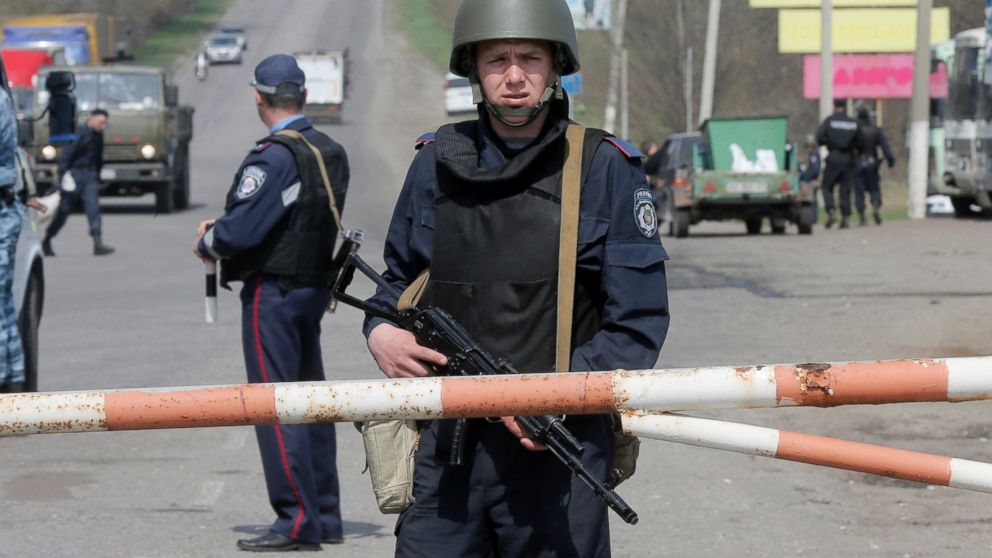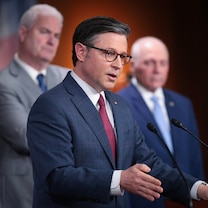Obama Raises Doubts Over Russia De-escalation Intents in Ukraine
Kerry cites progress in four-way Ukraine talks, but Obama not so sure..

APRIL 17, 2014— -- President Obama today expressed skepticism that Russia would change its behavior in Ukraine, even after a day full of talks in Geneva, Switzerland, yielded an agreement from the nation to help de-escalate the standoff with its neighbor.
“My hope is that we actually do see follow-through over the next several days, but I don't think, given past performance, that we can count on that, and we have to be prepared to potentially respond to what continue to be, you know, efforts of interference by the Russians in Eastern and Southern Ukraine,” Obama said during an impromptu press conference in the White House briefing room.
After Russia, along with Ukraine, the United States and the European Union, announced Thursday they had agreed to a framework to reduce tensions in Ukraine, Obama suggested the U.S. would wait to see whether Russia followed through on its commitments before imposing additional sanctions.
During the eight-hour meeting Thursday, the four sides committed to refraining from the use of violence, to getting all “illegal” forces within Ukraine to vacate and to supporting an international monitoring mission by the Organization for Security and Cooperation in Europe, which is already under way.
Obama said he had been consulting with his European counterparts including German Chancellor Angela Merkel and British Prime Minister David Cameron to coordinate additional penalties if Russia fails to prove it’s abiding by the new agreement.
Earlier Thursday, Secretary of State John Kerry said the lengthy four-way meeting on Ukraine had produced metrics for measuring how quickly the situation there de-escalates, but added that there is still more work to be done.
“All of this, we believe, represents a good day’s work,” he said after the meeting in Geneva, Switzerland. “But on the other hand, this day’s work has produced principles. And it has produced commitments.
“And it has produced words on paper. None of us leave here with the sense that the job is done because the words are on the paper.”
Kerry added that Ukraine had agreed to an inclusive constitutional drafting process that maintains respect for minority groups and takes into consideration the possibility for more autonomy within Ukrainian regions, some of the chief requests that Russia had made of Ukraine before the meeting, which included the United States, Russia, Ukraine and European Union.
“Ukraine’s leaders indicated that they are prepared to go to extraordinary lengths to address regional demands for more autonomy, for local self-government, for the protection of minority rights,” Kerry said.
But in an indication of how Russia may seek to skirt the red lines laid out in today’s agreement, Kerry also criticized Russia’s takeover of the Ukrainian region of Crimea as “illegal.” Russia continues to insist, however, that the annexation was done in the name of defending the Russian-speaking population of that area.
And Kerry added that while the parties convened in Geneva to “move away from what is a spiraling-downwards confrontation,” he noted that Crimea was not a topic of discussion Thursday.
“We have not given up but today we did not come here to talk about Crimea,” he said.




